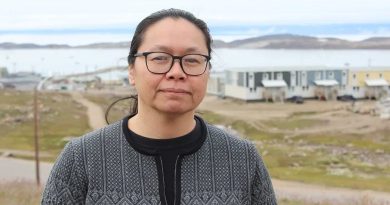1 week after being back, Yellowknife schools, hospital still getting back on track

By Julia Wong
It has been one week since the evacuation order for Yellowknife was lifted and residents were allowed back home, but schools and hospitals are still working on the return to normal.
Andrew Austin, a Grade 5 teacher at Range Lake North School, has been spending time re-arranging his classroom, organizing lessons and putting the final touches on decorations with his students’ names on them.
He said starting the school year feels “really good.”
“We’re kind of getting back to normal.”
Austin was one of several people CBC News spoke with during a behind-the-scenes look at the preparations for the return to school. CBC News was also given access inside Stanton Territorial Hospital in Yellowknife.
Final preparations
Jordan Martin, operations director for Yellowknife School District No. 1, said crews assessed schools and found there was no smoke damage from the wildfire. The fire, which is now being held, came within 15 kilometres of the city and is roughly 176,000 hectares in size.
However, air quality is top of mind as smoke from nearby wildfires lingers over the city.
Martin said the majority of classrooms have HEPA filters and work is underway to change filters as part of ongoing maintenance.
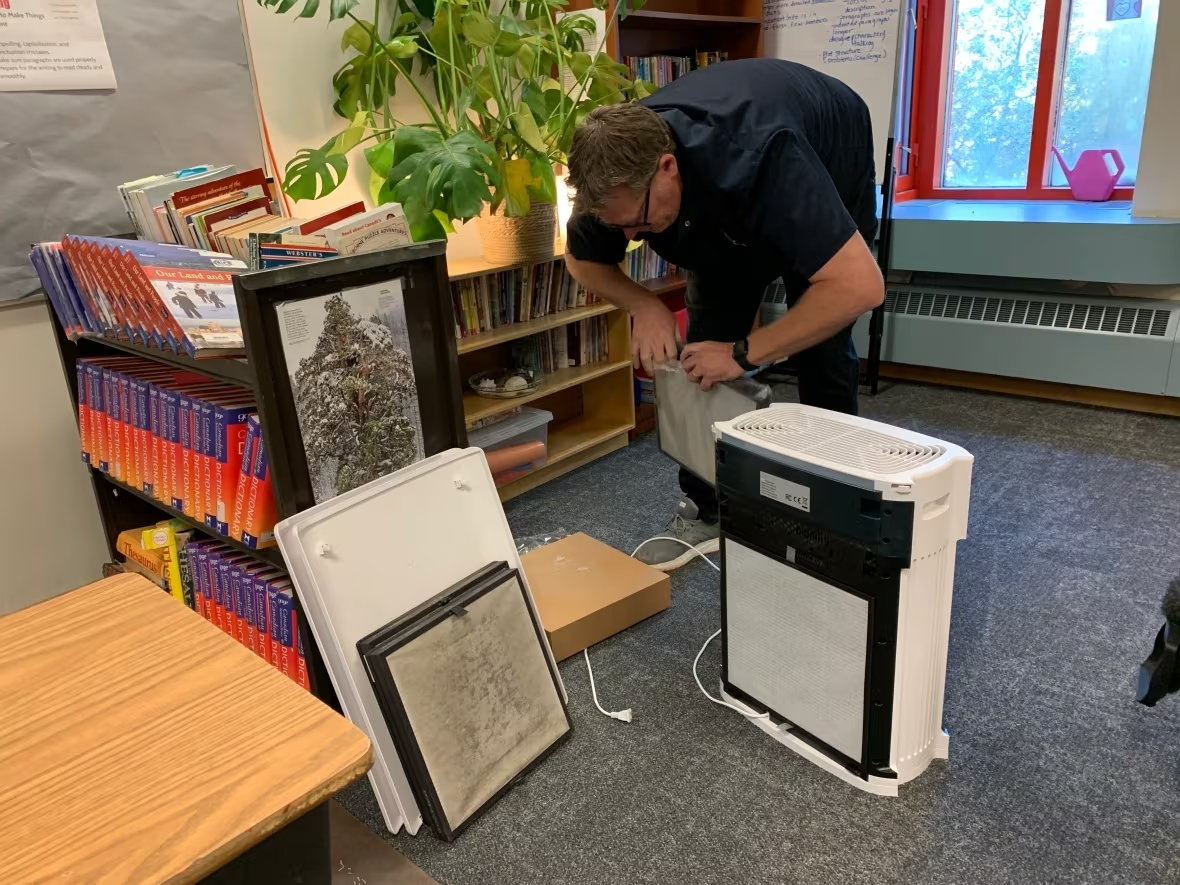
At Range Lake North School, crews are scrambling to finish laying down new flooring before doors open to 265 students on Thursday. That work was put on hold because of the evacuation. Approximately 20,000 residents in the city were ordered to leave the city by Aug. 18 as wildfire crept closer.
Flooring work at that school, which teaches students from junior kindergarten to Grade 8, along with deck repairs at École Sir John Franklin High School, should be complete by next week.
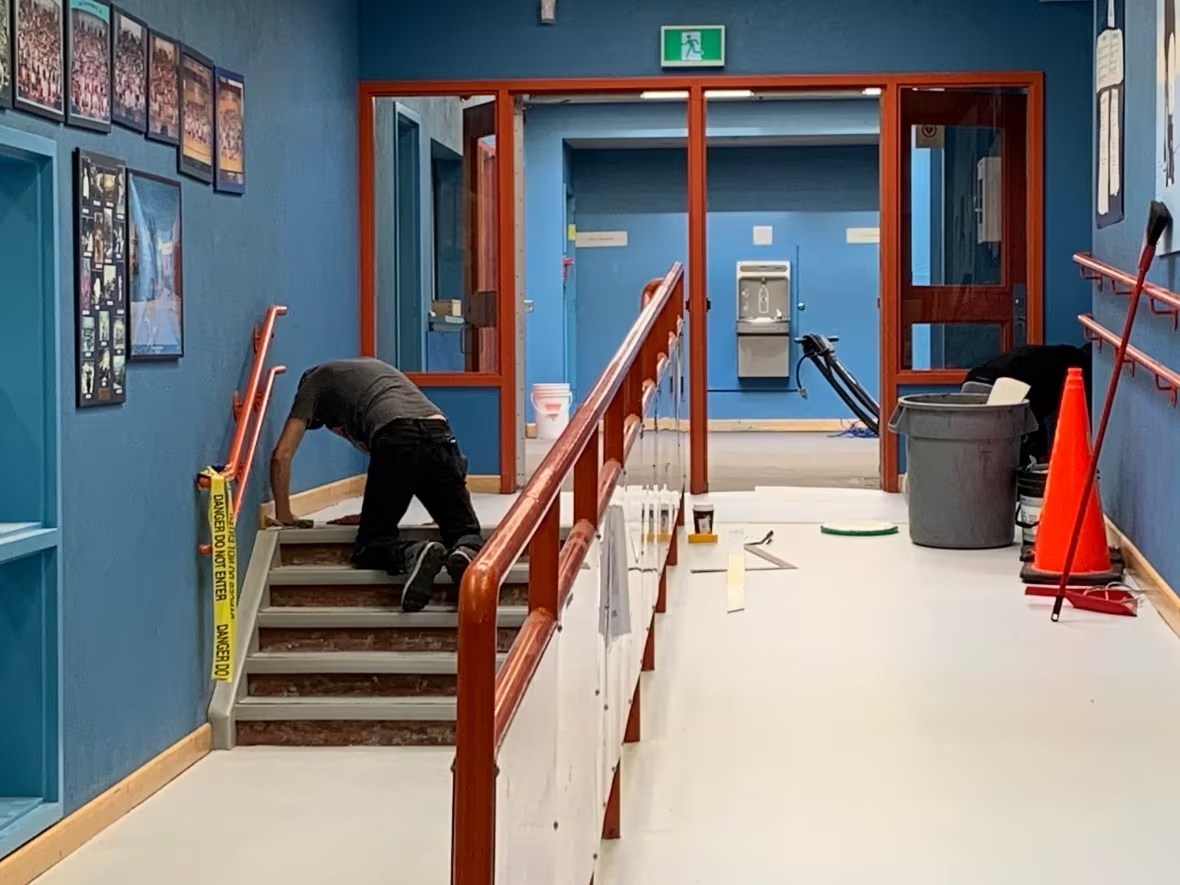
Meanwhile, staff at the school have been meeting, preparing their classrooms and working on lesson plans, but there is an awareness that mental health will be a priority.
“We’re never had to evacuate Yellowknife before. So [we’re] being really mindful that some of our families and some of our students are going to be quite stressed out and have been living without … the usual routines and so on that kids need,” said principal Yasemin Heyck.
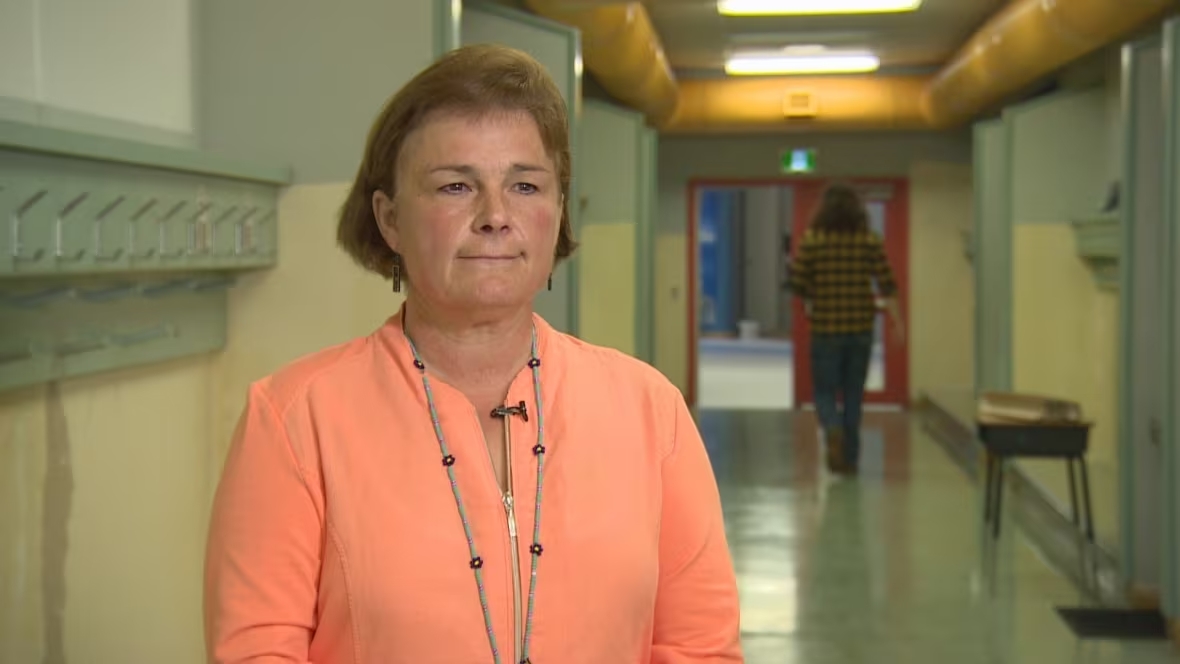
As such, no big festivities are being planned for the first day back.
“Big groups can be very overwhelming,” Heyck said. “Right now, we’re just focusing on really having a calm, relaxing start. Probably [during] the second week we’ll have a welcome back celebration.”
Yellowknife Education District No. 1 superintendent Jameel Aziz said 98 per cent of staff were back as of Monday, and there is an understanding that this school year is an unusual one.
“I think we’re going to have to be sensitive to the needs that students and families are showing us,” he said.
“We’re going to have to, not necessarily ease into things, but I think really make sure that we understand that this is not a typical year.”
Hospital working to get back to 100% capacity
Meanwhile, Stanton Territorial Hospital is also slowly returning to regular operations.
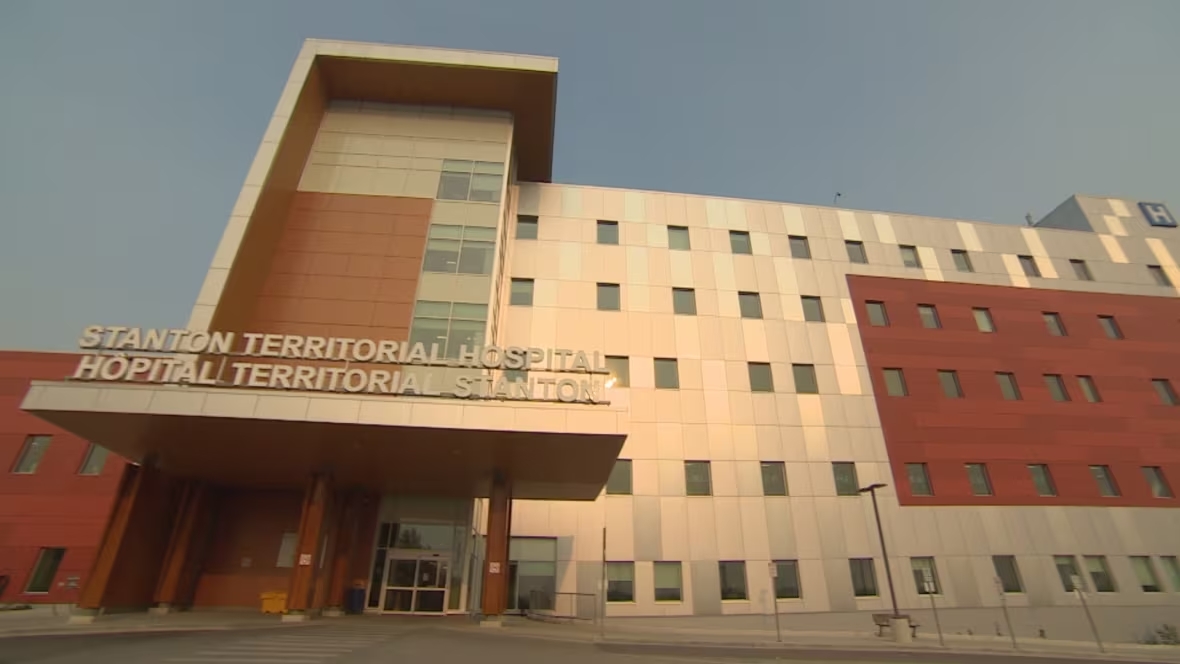
Dr. Claudia Kraft, the territorial medical director, said there are now 20 in-patient beds open, with an additional 10 beds being opened Wednesday in a surgical unit.
She said the pediatrics unit is re-opened, the endoscopy unit has been brought online and the emergency room is essentially at 100 per cent service.
The ICU has three beds and a fourth bed will soon be re-opened, Kraft said.
However, some operations are not quite at regular capacity. The labour and delivery unit remains suspended and elective surgeries will re-start next week.
“Most of our services should be back up and running within the next seven to 10 days,” she said.
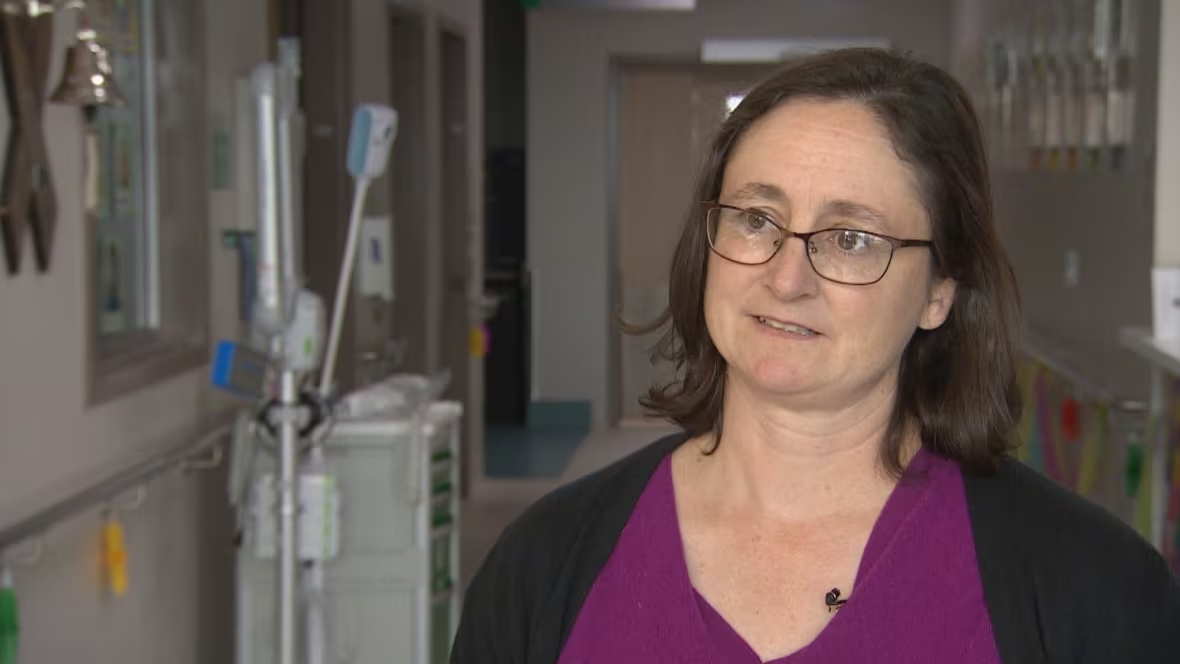
“Having it like a true normal business is probably going to be more like another three weeks or so, maybe a little longer.”
It is a delicate balance to bring back patients who were flown to hospitals in Alberta and B.C., according to Kraft.
“What are the care needs of all of those people today? When is it safe in their medical trajectory to move them or contemplate moving them? What are the best transportation resources and how do we mobilize those?” she said.
Testing machines
Beyond that, crews have been working to ensure all medical equipment is safe and ready to use.
Kevin Taylor, the territorial manager of biomedical engineering, said lab devices and X-ray equipment were wrapped up to protect them from potential fire, smoke or water damage during the evacuation order.

He and another technician came back early to unwrap all the critical equipment and assess it, adding there was no damage to any devices.
“We did the preventative maintenance checks on all the anesthesia machines, because electro-mechanical devices do not like sitting unused for three weeks,” Taylor said.
“We checked out all the dialysis machines. We pulled the service records on the dialysis equipment to make sure the automatic heat disinfects happened every day, so if patients showed up early, we would be confident the machine would be safe to be used on them.”
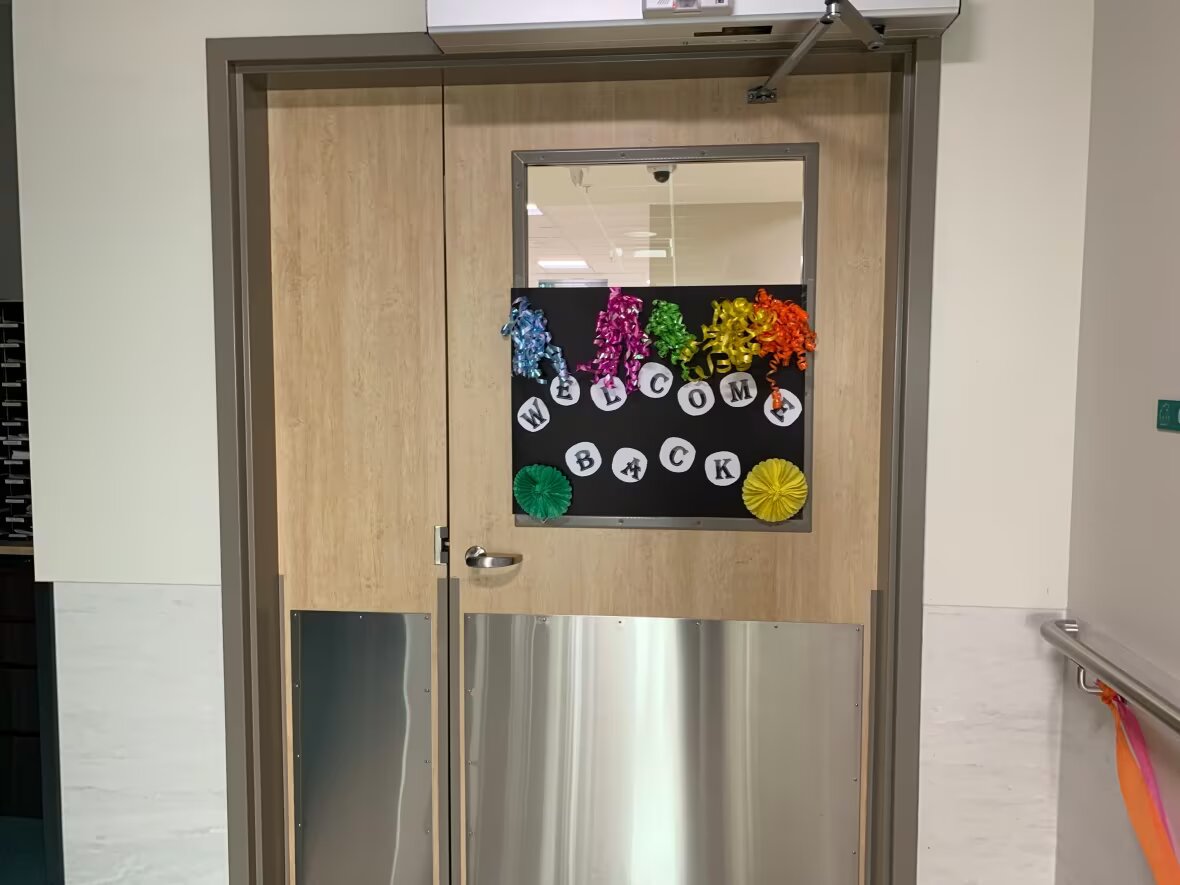
Julie Purcell, a manager for the ambulatory care clinics’ specialty clinics, said staffing levels are mostly back to normal, adding there will be close attention paid to how staff are doing as they decompress from the last few weeks.
“Over the next couple weeks … we’ll see better if more [help from the Employee and Family Assistance Program] is needed or if people are reaching out,” she said.
“This was trauma for us all. All our staff was also evacuated.”
Related stories around the North:
Canada: Unofficial results show three Yukon schools vote to join First Nation School Board, CBC News
Iceland: New COVID-19 restrictions for Iceland’s schools and universities, Eye on the Arctic
Finland: COVID-19 roundup: schools to reopen in Finland; two weeks of self-isolation in Yakutia, Russia, Eye on the Arctic
Russia: Schools in Murmansk, in Arctic Russia, told to teach anti-Ukraine propaganda, The Independent Barents Observer
United States: U.S. launches effort to document history of Indigenous residential schools, The Associated Press

